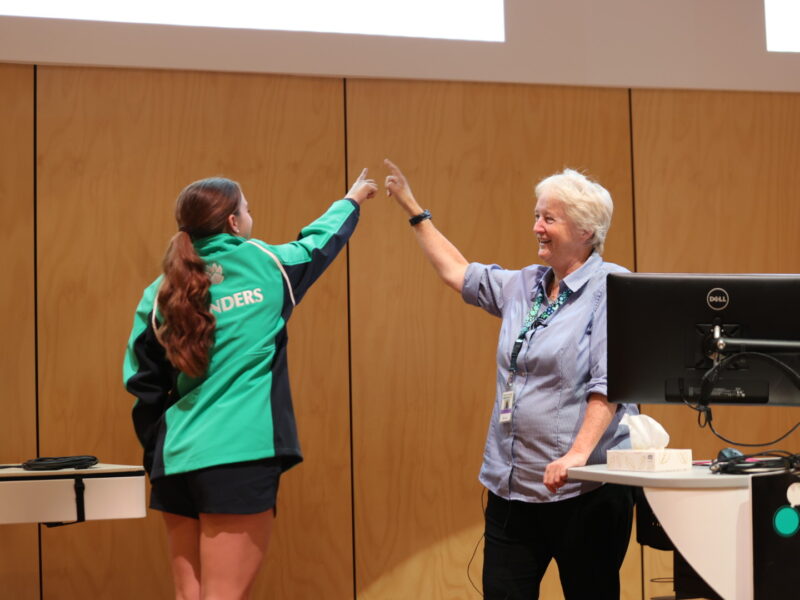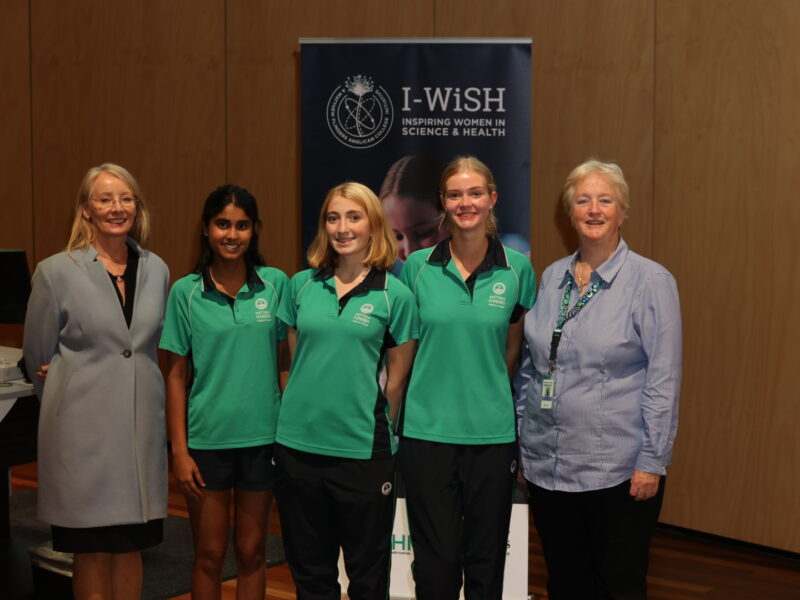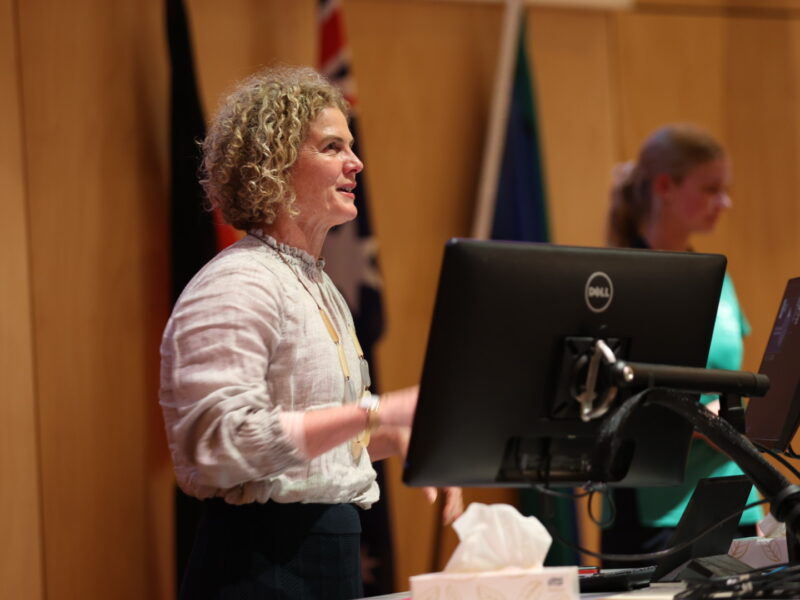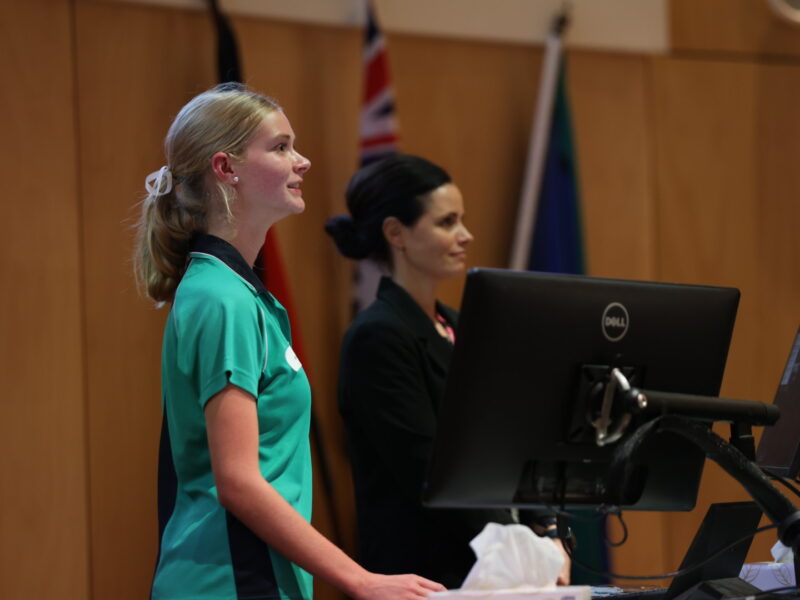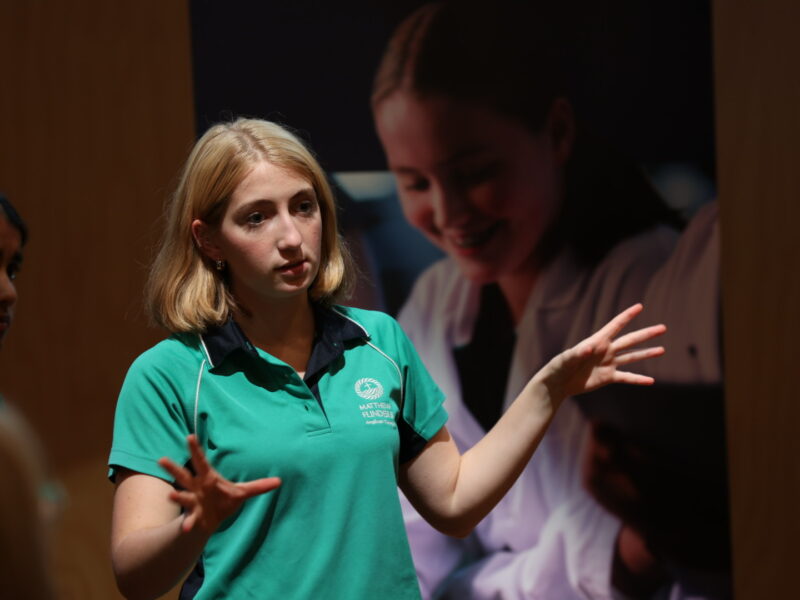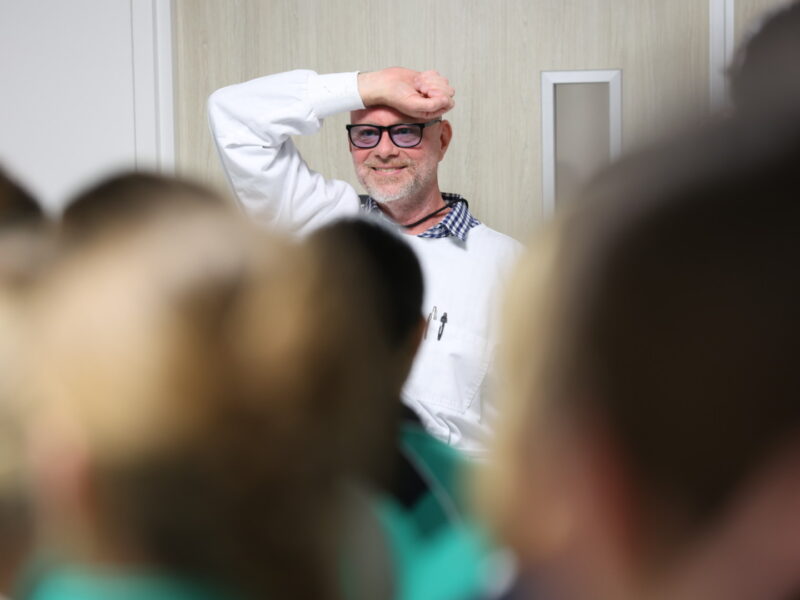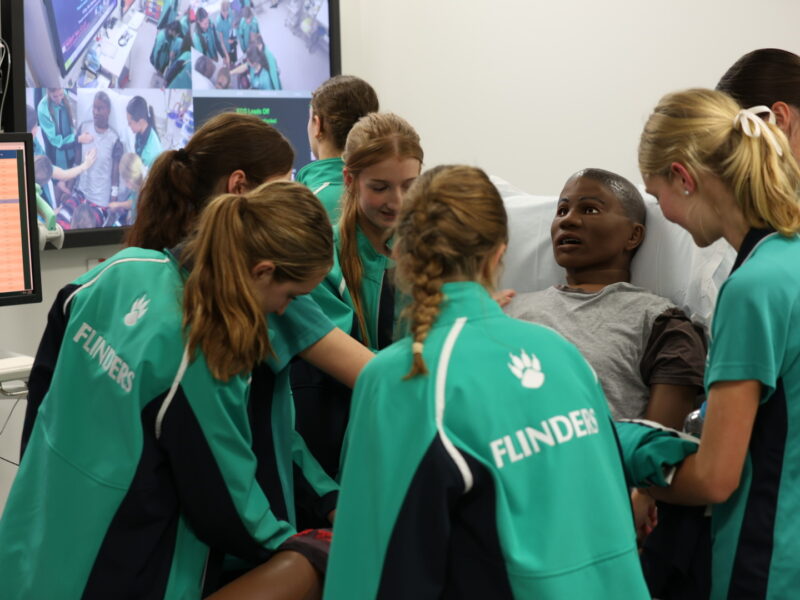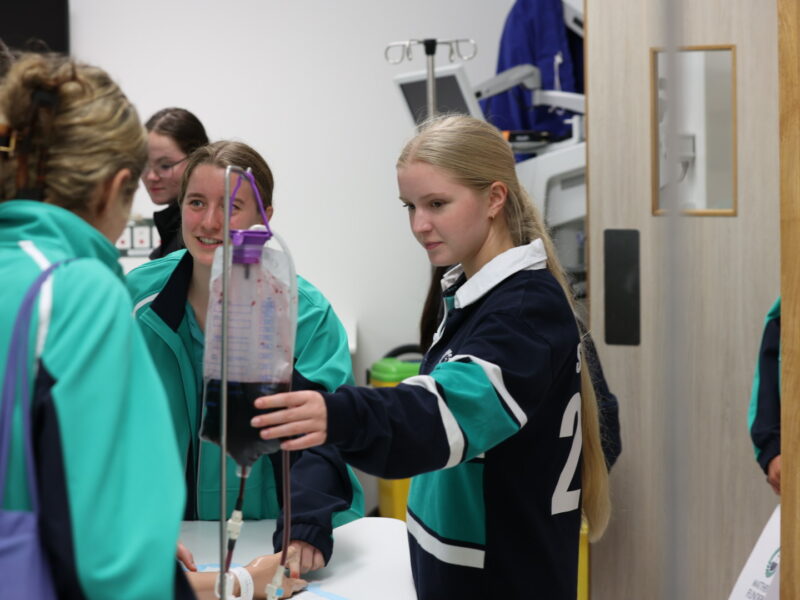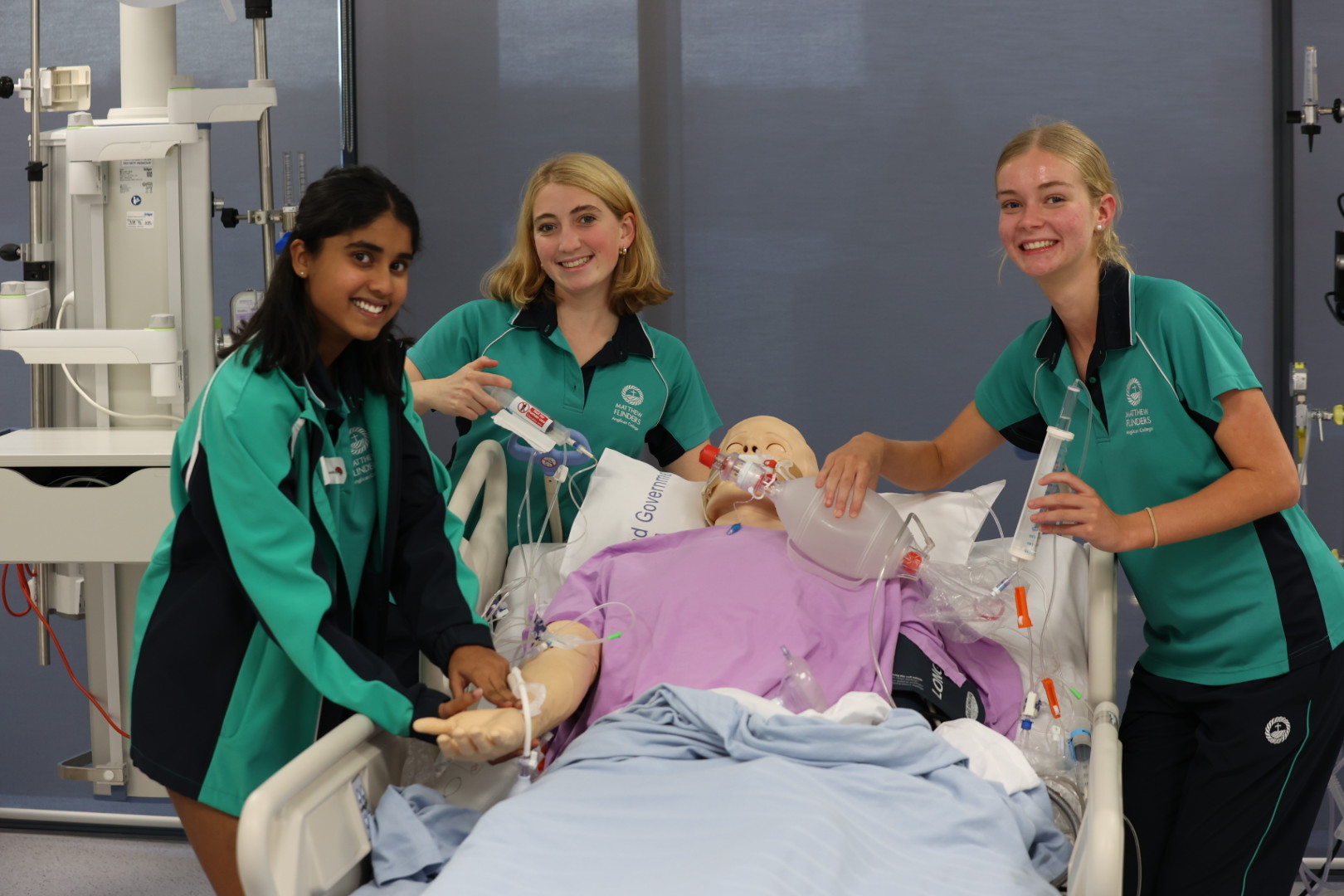As part of the 2025 National Science Week celebrations, the Sunshine Coast Health Institute and Matthew Flinders Anglican College have announced an exciting new partnership to champion excellence in health education and research in the Sunshine Coast region.
This collaboration empowers girls and boys through signature events (including the annual I-WiSH conference from 11-12 August) and mentorship opportunities, guiding them to explore career pathways in health-related science, technology, engineering and mathematics (HeR‑STEM).
On Monday, 11 August, SCHI hosted a special ‘girls in STEM’ event for 75 girls from Flinders and 20 girls from across five schools on the Sunshine Coast along with 10 leading female researchers and scientists (see images below and feature).
The students toured SCHI’s world-class education, research and training facilities and engaged in keynote speeches from:
- Professor Alison Jones, Executive Director of SCH, a toxicologist and highly-regarded researcher with more than 25 years’ clinical experience, and
- Dr Angela Carberry, Research Program Manager at SCHI and a Flinders alumna.
The gateway event opened the fifth annual Flinders Inspiring Women in Science and Health conference (I-WiSH) held on Tuesday, 12 August at Matthew Flinders Anglican College in Buderim, which all students and researchers attended.
Dr Louise McCuaig, the Director of the Flinders Discovery Institute at Matthew Flinders Anglican College, said the partnership provided a beacon for health education and research on the Sunshine Coast and addressed the conundrum of “You cannot be what you cannot see”.
“This new partnership between SCHI and Flinders provides real-world opportunities for young people to witness the translation of science into innovative health care and to meet inspiring role models working in health-related science fields,” Dr McCuaig said.
“Together, Flinders and SCHI aim to equip, empower and inspire a much larger generation of young people who can tackle the deeply complex, interwoven challenges (often called ‘wicked problems’) now facing healthcare,” she said.
“Through an early immersion in health and research science environments, young people are able to gain the skills and motivation to pioneer innovative, future‑ready solutions.
“IT and Digital Health are among the fastest‑growing fields in healthcare, fuelled by the surging demand for digital health services and innovations such as AI and telemedicine. Every role, from data engineers to clinicians, must function in harmony to keep our health systems running effectively.
“With the World Health Organisation projecting a global shortage of around 10 million healthcare workers by 2030, we urgently need to encourage young people to step into health and tech roles now, so that our growing population has access to high‑quality care in the decades to come.”
Dr Angela Carberry, PhD MPH, Research Program Manager at SCHI said, “This partnership between SCHI and Flinders is a proactive and positive approach to the growing health sector to create a brighter and more resilient future.
“At SCHI, we have world-class education, research and training facilities, and we’re delighted to open our doors to students who want to experience firsthand how tertiary training works and the role of research in finding solutions.
“The partnership will also explore the potential to create mentoring programs and experiential learning for students to enhance their skills and professional development, including for those interested in health-related technology and artificial intelligence (Al).”
SCHI is a joint venture between Sunshine Coast Hospital and Health Service, the University of the Sunshine Coast, Griffith University and TAFE Queensland—it offers simulation suites, clinical research labs and immersive teaching spaces alongside SCUH to support hands‑on training and translational research.
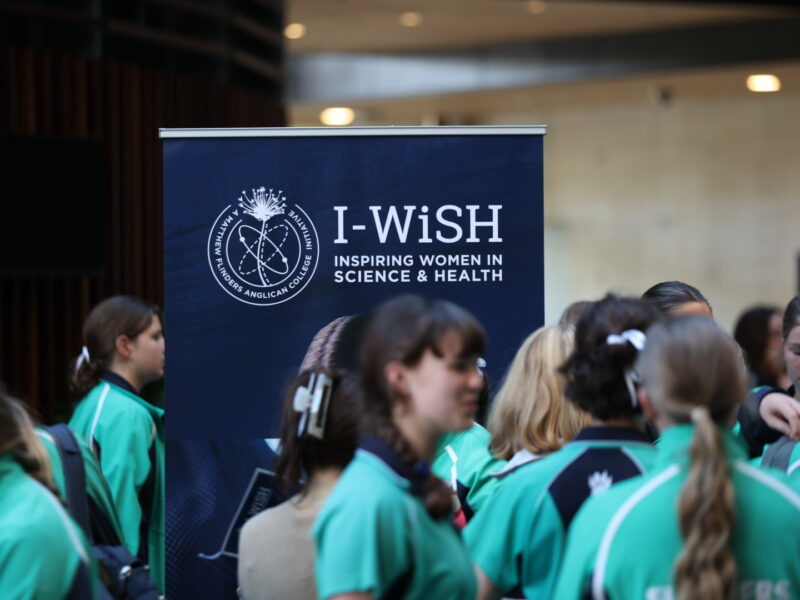
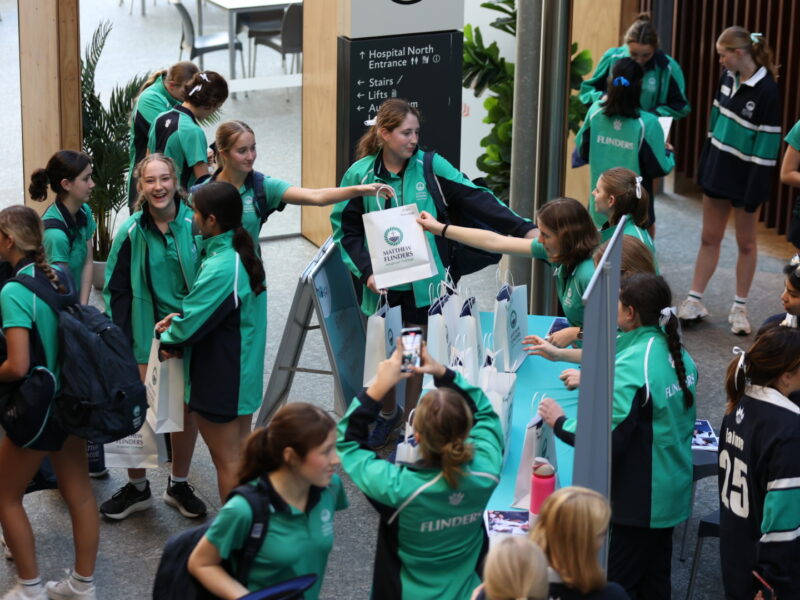
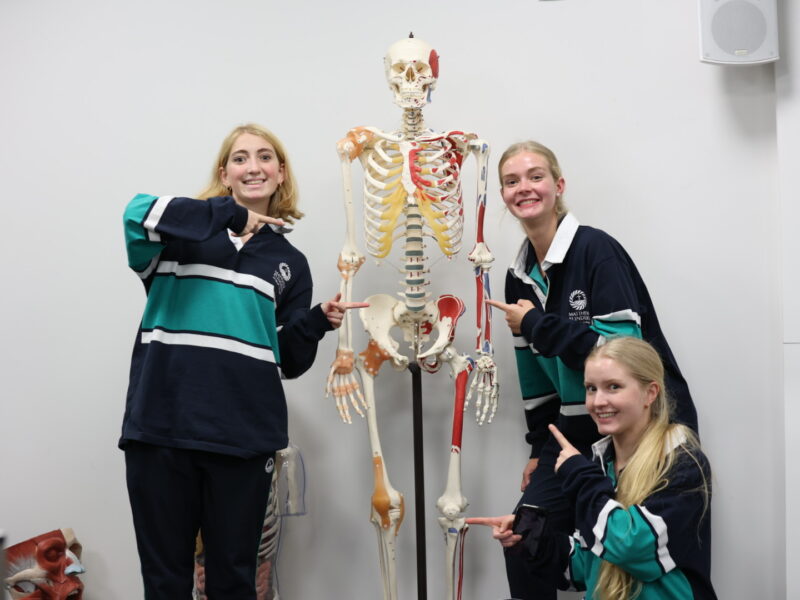
What the Research Says about Girls’ Participation in STEM Careers
ACER notes in this article here: “Concern persists about the number of female students choosing to study and pursue careers in science, technology, engineering and mathematics (STEM).
Overall, Australia has seen modest improvements in STEM enrolments. Over the 9 years between 2013 and 2022, the percentage of female students enrolled in year 12 STEM subjects rose from 45% to 47%.
Despite this, girls are still under-represented in Year 12 physics and astronomy, making up just 24% of the students enrolled in 2022. Similar trends are seen in information technology (26%) and engineering and related technologies (24%).
Data from the latest Trends in International Mathematics and Science Study (TIMSS) indicates significant improvements since 2019 for Australian students in year 4 science and mathematics performance, while year 8 students’ achievement held steady.However, girls’ performance in Year 8 declined over this period. It’s important to note this, because this stage of schooling is a pivotal time for choosing subjects for students’ senior years, and ultimately, pursuing STEM careers.”
